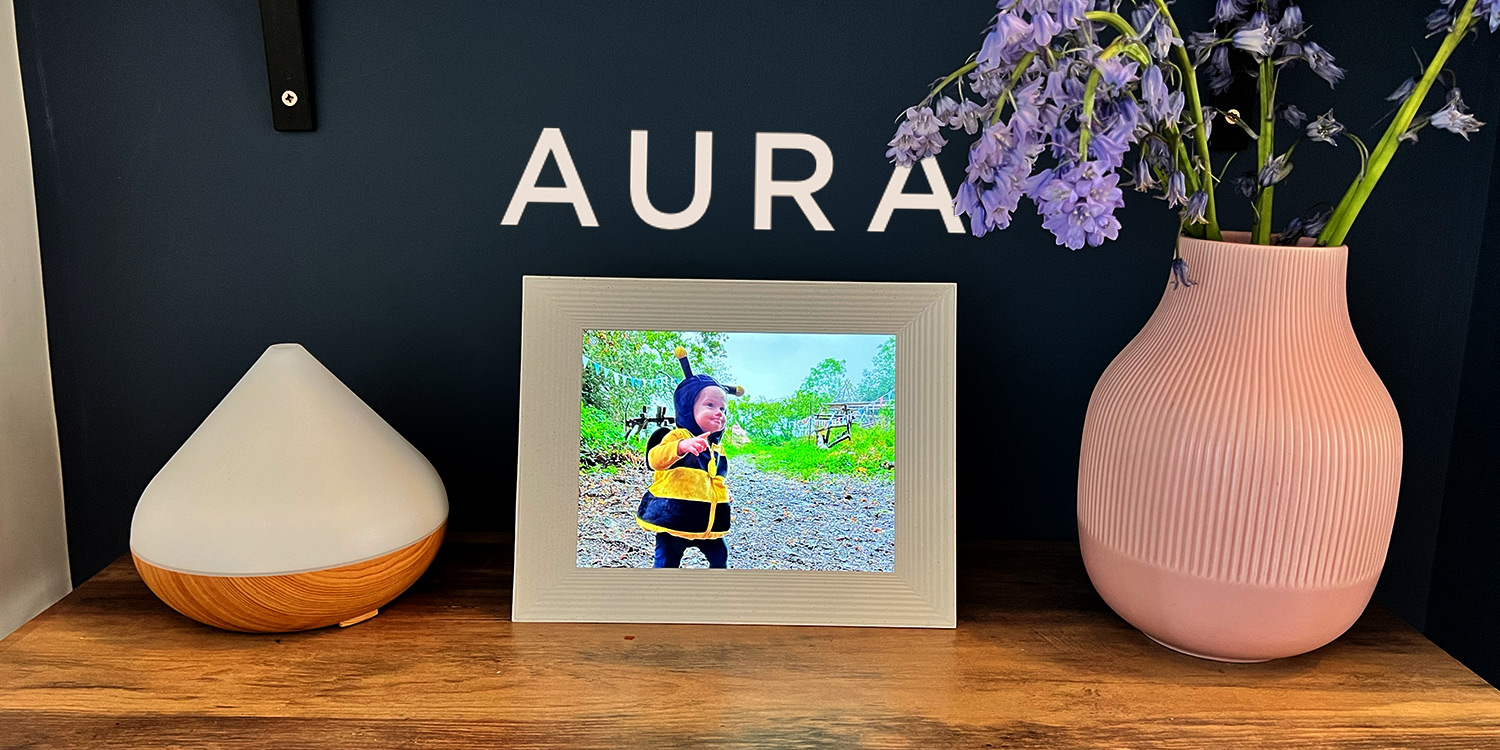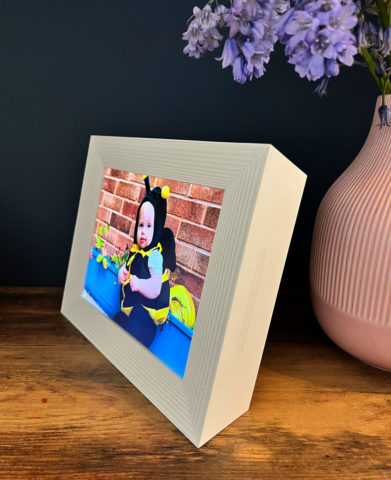Aura claims to make “the best digital picture frame,” and after testing one for a week it’s hard to find many faults with that claim – but is it worth the (rather high) asking price?
Disclaimer: Aura sent us a free Mason frame for testing purposes, but we’re under no obligation to say nice things about it. All opinions are our own!
Our first impression is that this thing is heavy. Maybe we’re spoiled by Apple’s obsession with lightness, but Mason’s 9-inch picture frame feels a lot more substantial than, say, an 11-inch iPad Pro. But that angular shape and chunky footprint are actually a boon to its intended use as a free-standing frame.
Note there are no mounting options, which may be a problem if you have a wall-or-nothing photo frame philosophy – but with trailing wires to consider, a shelf life seems most appropriate anyway.
Beyond that, the next thing you’ll notice is a lovely display: it’s crisp, bright, and really makes your photos shine – especially if you’re used to swiping through them on a diddly iPhone screen. Aura also makes a slightly larger frame with a higher-resolution 4K display if you really need the very best picture quality, but the standard ‘Full HD’ version will be plenty good enough for most people.
The real benefit of Aura’s system is how easy it is to add your photos and customize its display modes. The app works a treat, allowing you to upload any number of photos to its unlimited cloud storage – or utilize ‘smart suggestions’ to auto-pick your best images. (We didn’t find this feature especially useful, but if you’re short on time it’s a nice option to have.)
Aura recently added an in-app photo scanner too, which is a nice touch if you want to preserve old family albums or digitize your kids’ fridge art. Within a couple of minutes, you can have a set of pictures scanned into the app and displayed on the frame.
Beyond that, Aura does a lot of things right in terms of customization. The Mason frame works equally well in portrait and landscape, and does a reasonable job of “auto-fitting” images that don’t have the right proportions. You can manually tweak how any of these are cropped from the app, as well as choosing whether you want images to cycle through chronologically or at random.
Users can set a slideshow that changes every 15 seconds or tell the frame to serve up a new photo just once a day (or anything in between). Two touch strips on the frame itself allow you to swipe through photos manually if you want to speed things up, and you can even use your phone as a remote control for the frame.
An ambient light sensor adjusts the display brightness to match the room, and you can set it to switch off automatically when the lights go out to save power. And a built-in speaker means that you can even listen in to what’s going on in a Live Photo or video. (That said, video support was spotty during our tests.)
So far, so good. But what makes Aura any better than the other digital frames out there, most of which are considerably cheaper?
Well, very few competing frames offer all the features we mentioned above, and we’re not sure any offer such a well-designed product and frictionless service.
But Aura’s unique selling point is a social aspect that allows you to invite friends and family to join the fun. You can give multiple people access to a frame, all of whom can view the entire collection and add new pictures from the app.
This feature makes the frame a fantastic gift: you can pre-load it with pictures, send it to somebody, and update them with your latest family snaps remotely. Upload something new to the app and it’ll be added into the rotation on the linked frame almost instantly – there’s even a way to email photos directly to the frame, handy for family members who aren’t able to use the Aura app.
All in all, this is an excellent digital photo frame – perhaps best-in-class. But for the price of an Aura Mason, you could get two or three off-brand frames of a similar size. For that reason, it’s hard to recommend the product to anyone on a tight budget. $199/£189 is a lot for a single picture frame, and only your personal circumstances will tell if it’s worth it.
That said, you won’t find a better way to get your iPhone snaps into a real-life picture frame. If you value good design, unlimited storage, easy setup, family sharing, and plenty of customization options, Aura could be the perfect solution.




